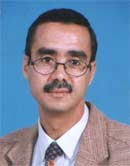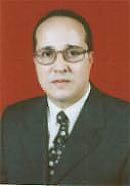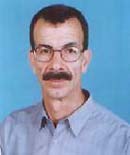Contents: 2024 | 2023 | 2022 | 2021 | 2020 | 2019 | 2018 | 2017 | 2016 | 2015 | 2014 | 2013 | 2012 | 2011 | 2010 | 2009 | 2008 | 2007 | 2006 | 2005 | 2004 | 2003 | 2002 | 2001
2005, 12
Harmonic reduction based on active solutions
language: English
received 06.10.2004, published 05.05.2005
Download article (PDF, 210 kb, ZIP), use browser command "Save Target As..."
To read this document you need Adobe Acrobat © Reader software, which is simple to use and available at no cost. Use version 4.0 or higher. You can download software from Adobe site (http://www.adobe.com/).
ABSTRACT
Most electronic systems use one or more switch mode power converter that will tend to draw current from the power line in a non sinusoidal shape. This input current characteristic results in current distortions that can contribute as well to the degradation of the supply voltage as to the negative disturbance effects of any connected equipment on the same line (interference, heating, noises, etc.). These problems have led to the creation of design standards and to develop interface systems which improve the power quality. Due to the high harmonic distortion of the wave of the current, it is necessary to develop solutions for their possible reduction. Consequently, the Power Factor Correction (PFC) stage of the front-end converter has become an important accessory. Operating principles, simulations and features of active solutions are discussed in this paper.
Keywords: Harmonics, Power converters, Passive filters, PFC, Control
11 pages, 16 figures
Сitation: Abdelkader Benaissa, Mohamed Karim Fellah, Ahmed Massoum. Harmonic reduction based on active solutions. Electronic Journal “Technical Acoustics”, http://www.ejta.org, 2005, 12.
REFERENCES
1. G. Zhu, H. Wei et al. A Study of Power Factor and Harmonics in Switched-Mode Power Supplies. IEEE Proceedings, 1999.
2. B. Singh, K. Al-Haddad, A. Chandra. A Review of Active Filters for Power Quality Improvement. IEEE Transactions on Industrial Electronics, vol. 46, N°5, October 1999, 960–971.
3. R. Redl. Power-Factor Correction in Single-Phase Switching-Mode Power Supplies- An Overview. Int. J. Electronics, 1994, vol. 77.
4. S. B. Dewan. Optimum Input and Output Filters for Single-Phase Rectifier Power Supply. IEEE Trans. on Industry Applications, May/June 1981.
5. A. W. Kelley, W. F. Yadusky. Rectifier Design for Minimum Line-current Harmonics and Maximum Power Factor. IEEE Trans. On Power Electronics, Apr. 1992.
6. N. Mohand, T. M. Undeland, W. P. Robbins. Power Electronics: Converters, Applications and Design. John Willey & Sons, Inc 1995.
7. A. W. Kelley, M. A. Hallouda et al. Near-Unity-Power-Factor Single-Phase ac-to-dc Converter Using a Phase-Controlled Rectifier. IEEE APEC’91.
8. R. Redl, Power-Factor Correction: Why and How? Power Supply Design Course. Nürnberg, Germany, Nov. 91.
9. D. Maksimovic, J. Yungtaek, R. W. Erikson. Nonlinear-Carrier Control for High-Power-Factor Boost Rectifiers. IEEE Trans. Power Electronics, July 1996.
10. L. Dixon. Average Current Mode Control of Switching Power Supplies. In Unitrode Power Supply Design Seminar, SEM-700, 1990.
11. L. Dixon. High Power Factor Switching Preregulator Design Optimisation. In Unitrode Power Supply Design Seminar, SEM-700, 1990.
12. C. Zhou, R. Ridley, L. C. Lee. Design and Analysis of Hysteretic Boost Power Factor Correction Circuit. IEEE, PESC’90.
13. A. Benaissa, M. K. Fellah, A. Meroufel, S. Hadjeri. Power factor correction techniques. Electrical Engineering Conference’02, Dec. 2002.
14. D. Maksimovic, J. Yungtaek, R. W. Erikson. Nonlinear-Carrier Control for High-Power-Factor Boost Rectifiers. IEEE Trans. Power Electronics, July 1996.
 |
Abdelkader Benaissa was born in Sidi Bel Abbes, Algeria. He received the Eng. degree in Electrical Engineering from University of Sciences and Technology, Oran, Algeria, in 1982, and the MS degree from the Electrical Engineering Institute of The University of Sidi Bel-Abbes in 1991. He currently is a member of ICEPS (Intelligent Control Electrical Power System) Laboratory in University of Sidi Bel-Abbes Algeria. His main research interests are in the field of analysis, modelling and simulation of power converters, and the power factor correction. e-mail: aek_benaissa(at)yahoo.fr |
|
 |
Mohamed Karim Fellah was born in Oran, Algeria, in 1963. He received the Eng. degree in Electrical Engineering from University of Sciences and Technology, Oran, Algeria, in 1986, and The Ph.D. degree from National Polytechnic Institute of Lorraine (Nancy, France) in 1991. Since 1992, he is Professor at the University of Sidi-bel-Abbes (Algeria) and Director of the Intelligent Control and Electrical Power Systems Laboratory at this University. His current research interest includes power electronics, HVDC links, and drives. e-mail: mkfellah(at)yahoo.fr |
|
 |
Ahmed Massoum was born in 1959 in M’sirda Fouaga, Tlemcen, Algeria. He received his BS degree in electrical engineering from the Electrical Engineering Institute (INELEC) of Boumerdes 1985 and the MS degree from the Electrical Engineering Institute of Sidi Bel-Abbes University in 2004 where he is currently Professor of electrical engineering. He is a member in Intelligent Control Electrical Power System Laboratory (ICEPS). e-mail: ahmassoum(at)yahoo.fr |
|
